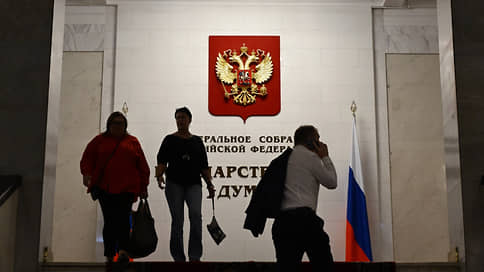The OKVED amendment passed the first reading in the State Duma
[ad_1]

The bill on reforming the All-Russian Classification of Types of Economic Activities (OKVED), conceived after the identification of problems with businesses receiving state support during the covid period, yesterday passed its first reading in the State Duma. The changes involve centralizing data in the tax service and freeing businesses from the obligation to annually confirm their main activity. The business community supports the reform concept, but believes that some of the changes may increase the burden on business – ideally, a transition to automated determination of OKVED codes is needed.
The State Duma in the first reading approved the bill on reforming the OKVED system from September 1, 2024. The initiative was proposed by the Ministry of Economy (see “Kommersant” dated December 2, 2022) in connection with problems that arose back in the “Covid” year of 2020 with companies receiving state support due to problems with OKVED codes. The fact was that the actual types of activities often did not coincide with the data from state registers; the problem was discrepancies in information. According to Deputy Head of the Ministry of Economy Polina Kryuchkova, the goal of the bill is to simplify the processes of assigning and changing codes, filing reports, as well as eliminating discrepancies in various state registers and increasing the targeting of state support.
Let us explain: now businesses must provide data to the registers of the Federal Tax Service and the Social Fund. The bill proposes to define the registers of the Federal Tax Service (Unified State Register of Legal Entities or Unified State Register of Individual Entrepreneurs) as a single source of information about OKVED codes – in particular, businesses will provide data on the structure of revenue instead of the Social Fund to the tax authorities. This was done to eliminate discrepancies in data in state registers. Previously, the number of companies that had different codes for their main activity was estimated at more than 800 thousand.
At the same time, it is planned to abandon the requirement for annual confirmation of the main type of activity: companies and individual entrepreneurs will have to independently check the information at least once a year and if the code of the main type of activity or the revenue structure changes by more than 20%, notify the tax office. The mechanism for assigning OKVED does not change: during initial registration, you only need to declare the codes, and after a year, you need to clarify the structure of the activity. At the same time, according to the idea of the Ministry of Economy, a business is not required to indicate all types of activities (data on areas that bring in 80% of revenue is sufficient), that is, it will still be possible to conduct some kind of activity without indicating it in state registers (with the exception of licensed ones) . A campaign is also planned to update businesses’ existing OKVED codes by April 15, 2025.
The business community perceives the changes ambiguously. As Anton Danilov-Danilyan, deputy chairman of Business Russia, notes, “this is indeed some step forward in terms of more precise parameters, so we did not object, although we have a fundamentally different view.” Companies, he explains, need the code only in cases of receiving state support, but otherwise “these are statistics that the state needs.” Therefore, it is necessary to use an automatic mechanism for determining OKVED – for example, each transaction must be assigned to one or another code. As Andrey Shubin, executive director of Opora Russia, notes, the association supports the concept of the bill, but disagrees with some of the proposals. Thus, due to the provisions on the need for annual verification of OKVED and accounting for revenue, there will be an additional burden on business, especially for individual entrepreneurs without employees who use special modes and do not keep accounting records. Also, “it is necessary to discuss the confirmation methodology with the business – at first glance, not everything is so simple.” According to Andrei Shubin, it is planned to continue consultations with the Ministry of Economy at the State Duma.
[ad_2]
Source link






